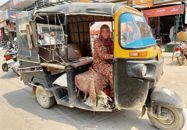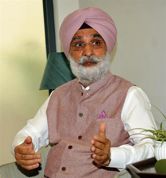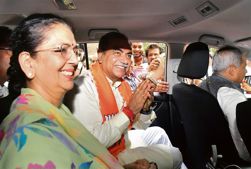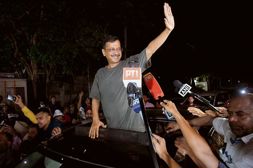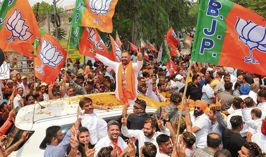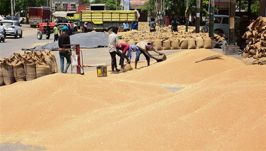
Author Batabyal
Neha Saini
Amritsar, April 27
“The politics of nationalism, language do not go away, they are eternal beings and just change forms,” author Somnath Batabyal said.
He was speaking at a session, hosted by Majha House, on his latest book, Red River.
During an engaging conversation with fellow author Mitra Phukan and Sanjoy Hazarika, Batabyal spoke about spending a major part of his childhood in Guwahati in the early 1980s, when Assam was undergoing a movement aimed at asserting cultural identity and also faced communal polarisation.
The London-based anthropologist has chosen to document the life at a small village in Assam, but with the broader themes of love, friendship, displacement and the concept of a nation state.
He said throughout the book, he tried to explore the theme of how we imagine a nation-state and how is it defined.
While the fictional story takes readers through the turmoil of Bangladesh’s Liberation war and displacement of Bengali Hindu families and later, Assam’s student movement and the period of violence in 1980s, it is also a personal journey of three friends and its many characters.
“A lot of research went into writing this book, it took me years to work on the plot. It originally was a 2,60,000-word draft that was edited to confine it into 1,00,000 words,” he said.
“Coming from a refugee family from Dhaka, my parents and I learnt languages in our attempt to belong,” said Somnath. Somnath said while the canvas of the book is huge, starting with a small village in Assam and later travelling to Bhutan, Bangladesh and London, Guwahati remains central to the story.
He explained, “The book tries to present the Bangla point of view of the 1980s Assam and my idea was to understand the concept of a nation state, not necessarily limited to India, through the characters.”
“I believe it’s a powerful concept, how we belong or don’t belong, the outsider versus majority debate, and the politics of language and so on. While the central plot follows three boys and their experiences, the larger story is about how we imagine a nation, where sports and war are the two areas where nationalism is witnessed and is defined,” he added.
Both Phukan and Hazarika commented that Somnath’s book, with all its sub plots and themes, resonates with the current socio-political climate in India.
However, Somnath said he did not intend to write a political novel but it just happened. “You can only reflect back on your childhood and I did on mine where I romanticised the idea of Guwahati. Despite the fact that during the time, it was ingrained that Bangla-speaking people in Assam were second-class citizens,” he said.
Join Whatsapp Channel of The Tribune for latest updates.







